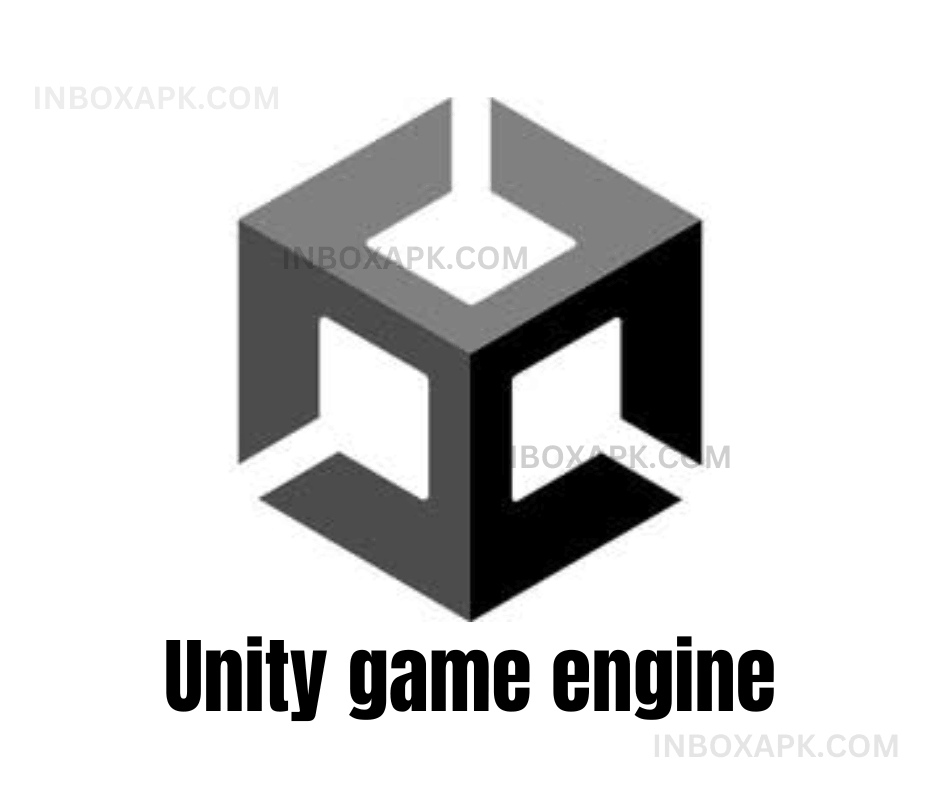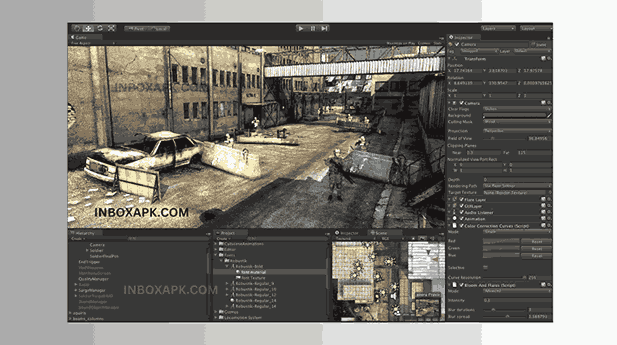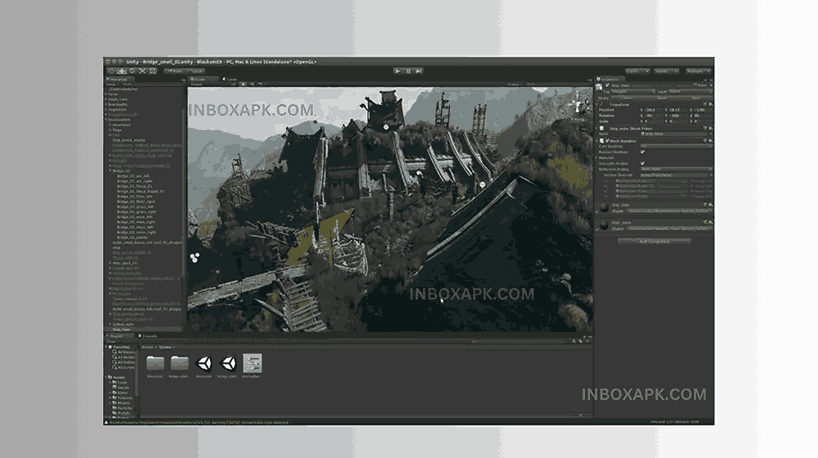Unity Game Engine Download for {PC, MAC, Android} Free
Just Now
3GB+
V5.02.32.266
No Any
4M+
Description
Introduction to Unity game engine
Unity game engine is a highly regarded game engine developed by Unity Technologies, first released in 2005. It has become one of the most widely used platforms for game development due to its versatility and powerful features. Unity allows developers to create both 2D and 3D games, offering tools for rendering, physics simulation, and animation. One key reason for Unity’s popularity is its cross-platform compatibility. Which allows games made with Unity to be deployed on a wide range of devices, from desktop computers to mobile phones and consoles.
What sets Unity apart is its ease of use. The platform is designed to be accessible to developers of all skill levels, from beginners to professionals. Whether you’re working on a small indie project or a large-scale production. Unity provides a range of features that can help streamline the development process. Its user-friendly interface and support for scripting in C# make it a great choice for those new to game development.

Moreover, Unity’s real-time rendering capabilities allow developers to see changes instantly while creating games. This real-time feedback accelerates the development cycle, enabling developers to refine their games quickly. With a strong community and extensive documentation, Unity is a powerful tool for game creators, offering both flexibility and ease of use.
What Makes Unity a Real-Time Game Engine?
Unity’s real-time capabilities are a fundamental part of its appeal. Real-time rendering refers to the process where the graphics in a game are constantly updated in response to user interactions. Unlike pre-rendered content. Which involves rendering graphics ahead of time and displaying them as videos, real-time content allows for interactive experiences. In Unity, this means developers can make changes to a game’s environment, characters, and mechanics while the game is running. However, it offering an immediate visual update.
This level of interactivity is essential for creating dynamic and immersive gameplay experiences. Players can influence the game world as it unfolds, responding to actions such as character movement, object interaction, and environmental changes. Real-time rendering also enables the use of advanced techniques like dynamic lighting, shadows, and physics. All of which make the gameplay experience more realistic and engaging.

The difference between real-time and pre-rendered graphics becomes particularly evident when comparing video games with films. However, in Unity, the game world continuously updates, allowing for a more responsive and engaging experience. As technology improves, the quality of real-time rendering has reached levels nearly indistinguishable from pre-rendered content. It offering players a seamless and immersive experience.
Unity game engine Support for 3D and 2D Game Development
Unity is designed to support the development of both 3D and 2D games, offering specialized tools and features for each. For 3D game development, Unity provides robust 3D modeling capabilities, including lighting, camera systems, and spatial audio. These features allow developers to create fully immersive environments, from vast open worlds to intricate indoor settings. Unity’s built-in physics engine also ensures that 3D objects interact in a realistic way, adding depth and complexity to the gameplay.

In addition to its 3D tools, Unity also excels at 2D game development. With a dedicated 2D mode, Unity offers tools like sprite rendering, animation systems, and tile maps. Which simplify the creation of 2D games. This mode also supports features like lighting, shaders, and particle systems, which can be applied to 2D games to give them a more polished, professional look. Unity’s versatility allows developers to switch between 2D and 3D modes easily, enabling them to work on both types of games within the same engine.
Unity’s combination of features for both 2D and 3D games makes. It an ideal choice for developers working across different genres. Whether you’re creating a side-scrolling platformer, a top-down RPG, or a first-person shooter, Unity provides the necessary tools to bring your vision to life.
Building Games for Multiple Devices with Unity game engine
One of Unity’s greatest strengths is its cross-platform compatibility. This compatibility allows developers to build games for a wide variety of devices. Games created with Unity can be deployed on major platforms like Windows, macOS, Linux, iOS, and Android. This broad support makes it easy for developers to reach a large audience, regardless of the platform their players are using.

Unity’s ability to build games for multiple platforms is made possible through its abstraction of hardware and operating system-specific features. This means that developers can focus on creating their game. While Unity handles the complexities of adapting the game to different devices. Additionally, Unity’s integrated development environment (IDE) allows for seamless testing across platforms, ensuring that games run smoothly on all supported devices.
For indie developers and hobbyists, Unity’s cross-platform capabilities are particularly valuable. By creating a game in Unity. Developers can target multiple platforms without having to develop separate versions of the game for each one. This not only saves time but also increases the potential reach of a game, making it accessible to a broader audience. Whether you’re creating a mobile game, a desktop title, or a VR experience, Unity provides the tools to bring your game to life on various platforms with ease.
Understanding Game Engines: What is Unity Used For?
A Unity game engine is a software framework that simplifies the development process for game creators. It provides developers with essential tools and services, such as rendering graphics, simulating physics, managing assets, and handling user input. By using a game engine like Unity, developers can focus on the creative aspects of game design, such as mechanics, storytelling, and world-building, without having to reinvent the wheel or build these systems from scratch.
Developers widely use Unity to create both 2D and 3D games, and its comprehensive feature set suits a variety of game genres, from casual mobile games to complex, high-quality console and PC games. The engine offers a user-friendly interface, making it accessible to developers of all skill levels. Unity’s asset store provides a vast library of pre-made assets, including models, textures, and sound effects, which help accelerate development and reduce costs.
Unity also supports various programming languages and scripting options, including C#, which developers widely use for writing game play scripts. This flexibility allows developers to implement complex game mechanics, AI, and interactions, while Unity’s built-in physics and animation systems handle other aspects of game behavior. Unity’s purpose is to serve as a comprehensive toolkit that makes game development faster, easier, and more efficient.
The Benefits of Using Unity for Indie Developers and Hobbyists
For indie developers and hobbyists, Unity offers a powerful and cost-effective solution for creating games. The platform’s free version allows developers to create high-quality games without the need for expensive software or licenses. Unity’s intuitive interface and vast community of developers make it accessible to newcomers, while its powerful features provide the flexibility needed for more experienced creators to tackle complex projects.
Unity’s asset store is another key benefit for smaller-scale developers. The store offers a wide range of assets, including 3D models, textures, sound effects, and scripts, many of which are free or affordable. This allows developers to save time and money by using pre-made assets, rather than having to create everything from scratch. Unity’s built-in tools, such as its physics engine, lighting system, and animation tools, also reduce the amount of time spent on technical tasks, allowing developers to focus on the creative aspects of their games.
Additionally, Unity’s strong community support is invaluable for indie developers. The Unity community is large and active, with forums, tutorials, and resources available for developers of all experience levels. Whether you’re working on a small mobile game or a larger, more ambitious project, Unity provides the tools and support needed to succeed.
Unity’s Built-in Features: Physics, Collision Detection, and More
Unity is equipped with a variety of built-in features that streamline game development. Making it easier for developers to implement complex mechanics without needing to code everything from scratch. One of the most important features is Unity’s physics engine, which handles the simulation of physical interactions between objects. This includes gravity, friction, and forces, making objects behave in a realistic way when they interact with one another. Whether you’re creating a 2D platformer or a 3D simulation, Unity’s physics system provides the necessary tools for realistic movement and collision.
Collision detection is another key feature of Unity. This system ensures that objects in the game world do not pass through each other, allowing for interactions like characters colliding with walls or platforms. Unity’s robust collision detection system supports both 2D and 3D environments and is highly customizable, enabling developers to fine-tune interactions to meet their specific needs. This is especially useful in action games or physics-based puzzles, where precise collision handling is essential.
Other built-in features include lighting systems, particle effects, and animation tools. Unity’s dynamic lighting system allows for realistic lighting effects, such as shadows, reflections, and ambient light, while its particle system can create effects like fire, smoke, and explosions. Animation tools enable developers to create smooth and lifelike character and object animations, giving games a professional polish. These features come integrated into the engine, saving developers time and effort while creating high-quality, interactive experiences.
Unity’s Scripting: Programming with C#
Scripting in Unity is an essential part of game development, allowing developers to control gameplay, behaviors, and interactions. Unity primarily uses C# for scripting, a popular and versatile programming language known for its readability and ease of use. C# is a powerful language that allows developers to write detailed scripts to handle everything from character movement and AI behavior to game mechanics and in-game events.
For beginners, C# in Unity is relatively easy to learn, especially if you have prior programming experience. Its syntax is straightforward and intuitive, making it a great choice for newcomers to game development. Unity’s C# scripts are attached to game objects, enabling developers to define specific behaviors and responses for each object in the game world. This makes it easy to control how characters, enemies, items, and other elements interact with one another in real-time.
In addition to traditional coding, Unity also offers visual scripting options through tools like Bolt. Visual scripting enables developers to create game logic using a node-based interface rather than writing code directly. This is particularly useful for those who may not be familiar with programming or for rapid prototyping. Visual scripting still provides powerful functionality, allowing developers to create complex interactions without needing to write extensive lines of code.
Why Unity is an Accessible Game Engine for Beginners
Unity is widely regarded as one of the most beginner-friendly game engines available today. Its intuitive interface and robust learning resources make it an excellent starting point for new developers. One of the key reasons Unity is so accessible is its easy-to-navigate workspace, where developers can drag and drop objects, adjust settings, and instantly see the results in the game view.
Unity also offers a wealth of educational materials for beginners. The engine’s official website offers tutorials, documentation, and sample projects that guide users through creating their first games. Additionally, there are countless community-driven resources, such as YouTube tutorials and online courses, which cater specifically to beginners. Whether you’re learning game development for fun or looking to pursue a career in the industry, Unity provides all the tools and support needed to succeed.
The use of C# for scripting also contributes to Unity’s accessibility. C# is one of the most beginner-friendly programming languages, with a syntax that is easy to understand and closely resembles other popular languages like Java and Python. For those new to programming, Unity’s scripting environment supports smooth learning and immediate application of coding concepts, helping developers gain practical coding skills that they can apply in other areas of software development.
Unity’s Free-to-Use Model and Monetization Options
Unity’s free-to-use model is one of the reasons it is so appealing to both indie developers and hobbyists. The engine is available at no cost to anyone who earns less than $100,000 in annual revenue from the games they create. This means that aspiring developers can use Unity’s full set of features without any upfront cost, making it accessible for those who may not have the budget for expensive software licenses.
Once a developer’s revenue surpasses the $100,000 threshold, Unity requires them to upgrade to a paid version, Unity Pro, which comes with additional features, services, and priority support. However, for smaller developers, the free version provides everything they need to create high-quality games. Unity also offers flexible monetization options, allowing developers to earn revenue through ads, in-app purchases, or by selling their games on various platforms, including the Unity Asset Store.
Unity’s free-to-use model and monetization flexibility make it an ideal platform for developers looking to enter the game development space without significant financial investment. As they grow and succeed, developers can then choose to upgrade to Unity Pro for access to enhanced features and support.
Getting Started with Unity game engine
Getting started with Unity is a straightforward process, even for those who have never used a game engine before. To begin, visit the official Unity website and download the Unity game engine. Which is the application that manages all versions of the Unity engine.
Unity Hub allows you to install and update the engine, create and manage projects, and access useful learning resources.
Once you install Unity Hub, you can choose which version of Unity to download. Most users should download the latest stable version, as it includes the latest features and improvements.
After downloading the engine, you can start a new project or explore existing tutorials to familiarize you with Unity’s interface and tools.
Once installed, you can begin creating your first game by following beginner tutorials or experimenting with Unity’s sample projects. With everything set up, you’re ready to start your journey into game development!
The Future of Unity: Upcoming Features and Updates
Unity is continually evolving, with new features and updates being rolled out to improve the development experience. The engine’s development roadmap includes enhancements to real-time rendering. This improved AI and machine learning integration, and expanded support for virtual and augmented reality (VR/AR). Additionally, Unity is focusing on optimizing the performance of games. Particularly for mobile and console platforms, ensuring that developers can create high-quality games that run smoothly on a wide range of devices.
Unity is also making strides in integrating cloud services. Allowing for better collaboration among development teams and streamlining the process of sharing assets and project files. The future of Unity also includes a focus on making the engine more accessible to creators working on larger-scale projects, with new tools to improve workflow and manage complex games.
As the gaming industry continues to grow. Unity is positioning itself as a key player in the development of next-generation games. With its dedication to innovation and user feedback, Unity’s future looks bright, offering developer’s even more powerful tools to bring their creative visions to life.
Conclusion
Unity game engine is a versatile and accessible game engine that supports the creation of both 2D and 3D games. Its real-time rendering, cross-platform compatibility, and wide range of built-in features. Thats make it an ideal choice for developers at all skill levels. With a strong community, comprehensive learning resources, and a free-to-use model. Unity provides the tools necessary to bring game ideas to life. Whether you’re an indie developer, a hobbyist, or a professional, Unity offers everything you need to create immersive and interactive gaming experiences. For more Related Apps and Games visit our website Inbox APK.




